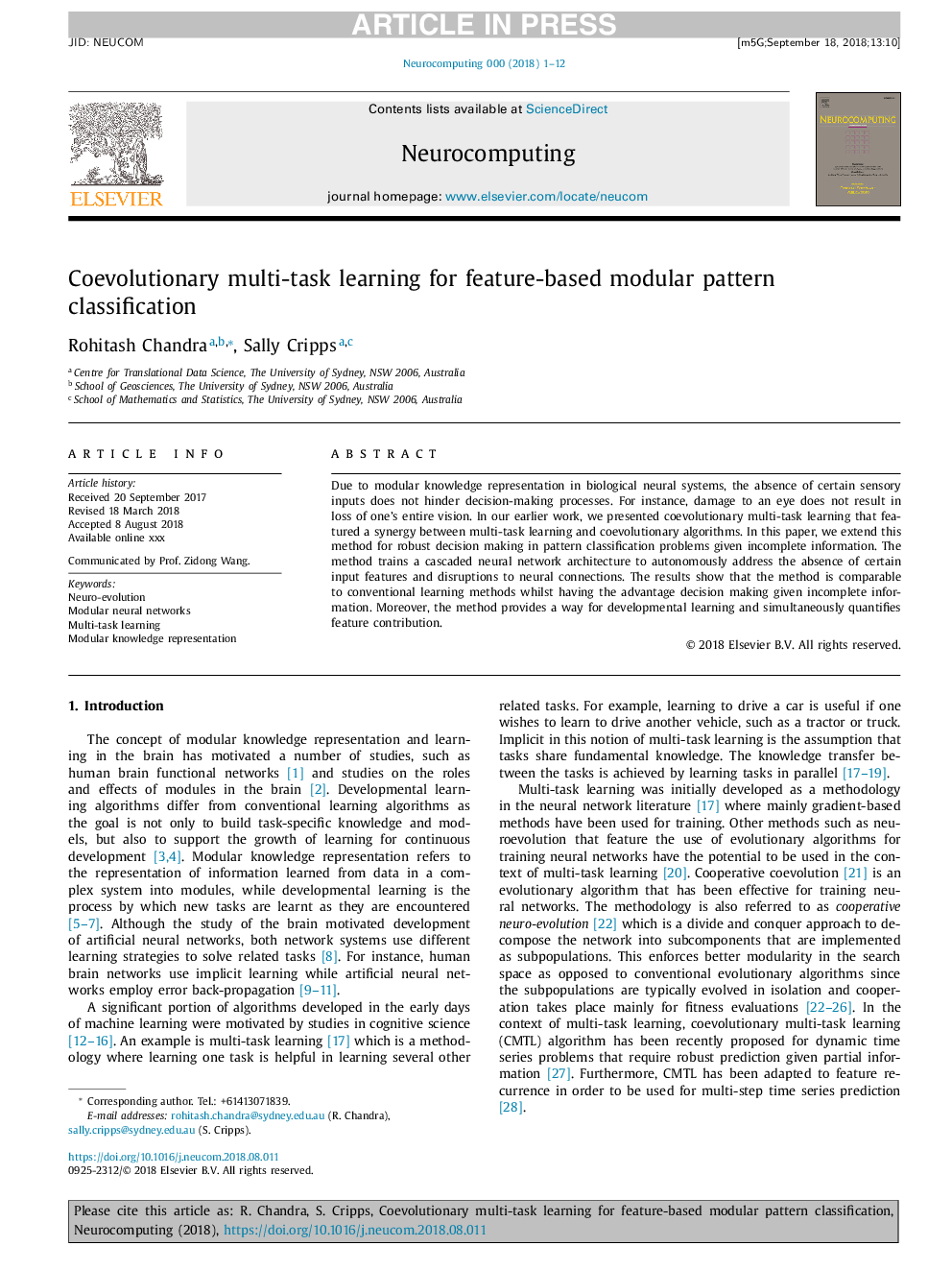| Article ID | Journal | Published Year | Pages | File Type |
|---|---|---|---|---|
| 11012495 | Neurocomputing | 2018 | 12 Pages |
Abstract
Due to modular knowledge representation in biological neural systems, the absence of certain sensory inputs does not hinder decision-making processes. For instance, damage to an eye does not result in loss of one's entire vision. In our earlier work, we presented coevolutionary multi-task learning that featured a synergy between multi-task learning and coevolutionary algorithms. In this paper, we extend this method for robust decision making in pattern classification problems given incomplete information. The method trains a cascaded neural network architecture to autonomously address the absence of certain input features and disruptions to neural connections. The results show that the method is comparable to conventional learning methods whilst having the advantage decision making given incomplete information. Moreover, the method provides a way for developmental learning and simultaneously quantifies feature contribution.
Related Topics
Physical Sciences and Engineering
Computer Science
Artificial Intelligence
Authors
Rohitash Chandra, Sally Cripps,
